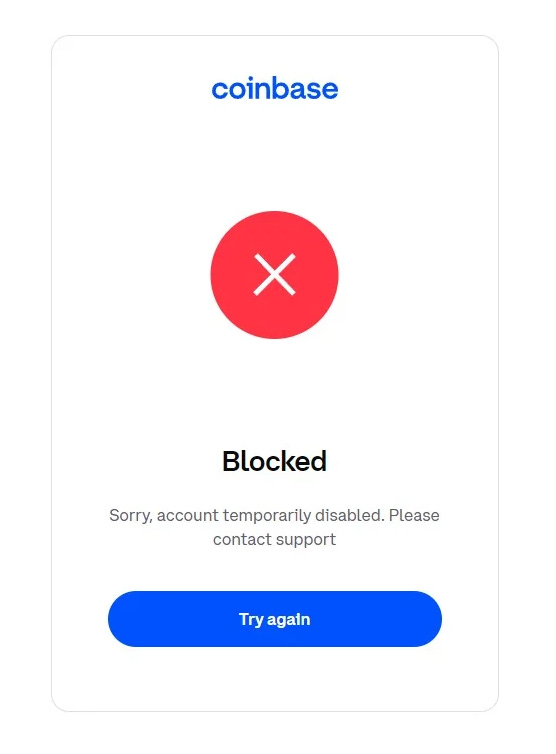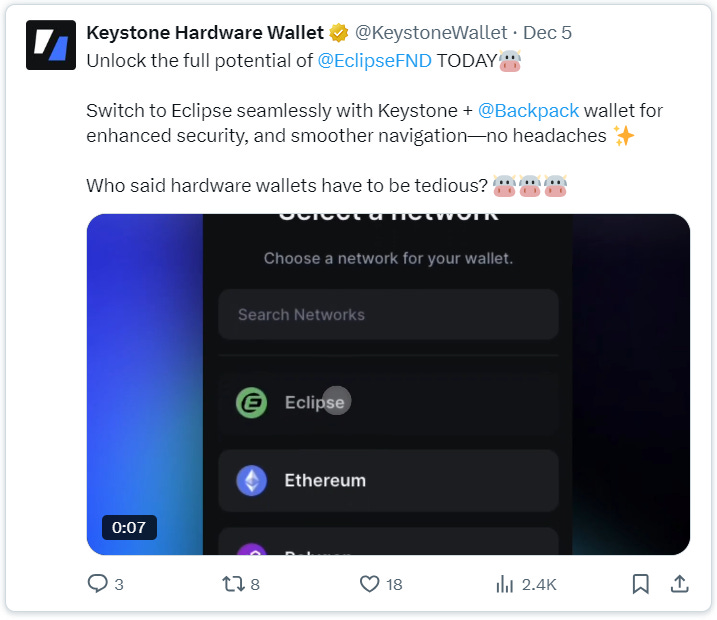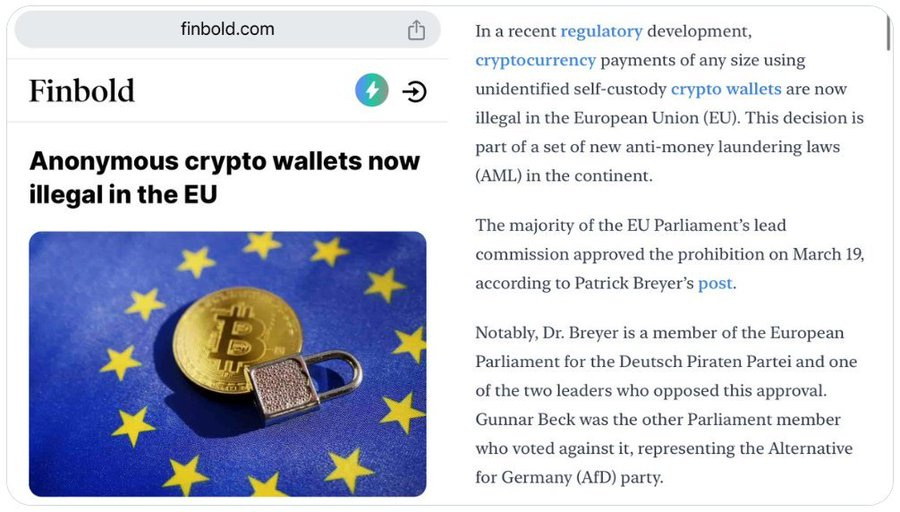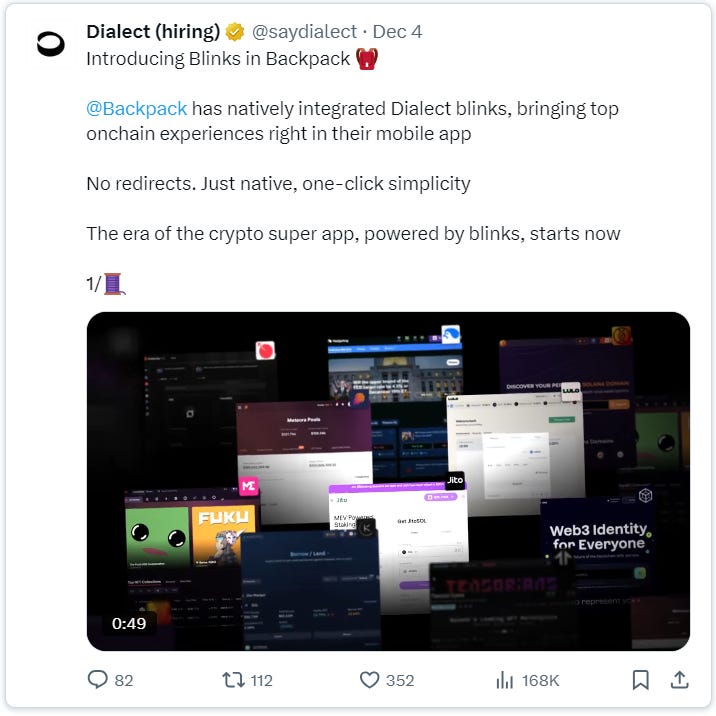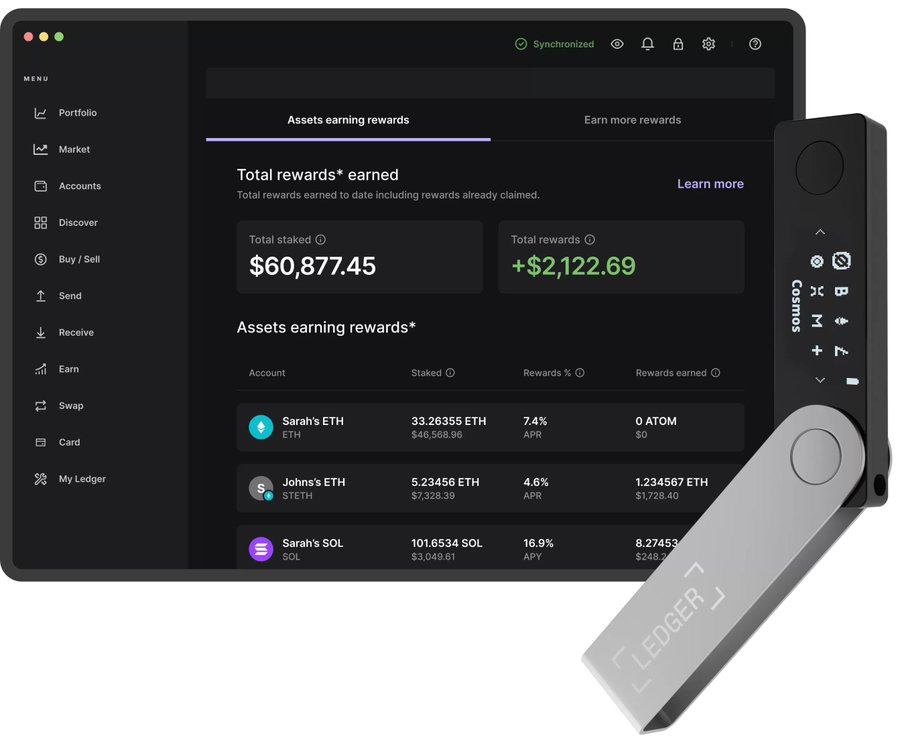Mad News #79 🔐 Self Custody & Cold Storage
This week we're diving into self custody and cold wallet storage from the importance of self custody, cold storage private key management, how Vitalik Buterin sees the future of wallets. Fock it.
Welcome to the Mad News! 📰
This week we're diving into self custody and cold wallet storage from the importance of self custody, cold storage private key management, how Vitalik Buterin sees the future of wallets and multisig security to dApp security best practices with Solana Blinks and earning yields from cold storage crypto staking.
Fock it.
This week in Mad Lads & Backpack👇
Poker tournaments, movie nights, gaming sessions and other community events taking place in Mad Lads Discord
Lads holders line up for Bluefin airdrop
Backpack joins Eclipse for Eclipse Eco Hang Spaces
Monad Pad drops Backpack teaser for upcoming testnet launch
Blinks by Dialect go live in Wallet
The Solana Holiday Shop added to Wallet (powered by Blinks).
We are shaking up the Mad News! Let us know in the comments how you like the new format.
Self custody and why it's important 🔐
Self custody means true ownership of the private keys to your crypto. These keys are the gateway to accessing and managing digital assets.
"Not your keys, not your coins." is a common mantra which captures the crypto communities conviction towards self sovereignty and decentralization.
If you don't hold the keys to your crypto then you don't actually own it.
Self custody means you have your keys, a connection to a validator, and you have your money. If anyone can stop you, it's not self custody.
Armani Ferrante

Blockchains were designed to promote financial freedom, and self custody ensures users can transact without fear of monitoring, censorship, or restrictions.
Wallets like Backpack are self custodial and empower users to manage their own private keys.
Crypto wallets and their role in self custody 🎒
Crypto wallets fall into two categories: custodial or self custodial.
Custodial wallets are managed by third party platforms and are most commonly associated with crypto trading exchanges. They hold your private keys and you are not in control of your crypto.
Custodial wallets, typically offered by crypto exchanges, are managed by third parties who hold your private keys which means you don’t have full control over your crypto.
While custodial options are often the most user friendly, they come with significant risks.
For example, in 2023, the popular trading app Robinhood delisted SOL and force-sold users' coins at $16. With SOL now trading at $235, those users missed out on over 1,000% in gains.
Self custodial wallets (like Backpack) give you full control over your crypto by allowing you to hold your own private keys.
Most hot wallets and all cold storage wallets are self custodial, catering to those who prioritize security.
Practicing self custody with cold storage wallets 🧊
Software wallets, also known as hot wallets, are a digital applications that store the private keys needed to access and manage digital assets. Most software wallets are self custodial, giving users control over their crypto.
Hot wallets serve as a dashboard for interacting with the blockchain. They're used for managing assets, sending and receiving funds, purchasing NFTs, playing games and exploring dApps.
While convenient, they are vulnerable to security risks like malicious transactions and phishing attacks.
Hot wallets are great, but think of it like cash. In general, don't use them with any funds you can't afford to lose.
Hardware wallets, also known as cold storage, are physical devices that store private keys offline. Since they aren't connected to the internet, they offer enhanced security and are rarely used for direct interactions.
Advanced users often transfer crypto from their hardware wallets to hot wallets when performing specific on chain activities. This practice ensures they never connect their cold storage wallets to dApps, minimizing exposure to security risks.
Popular hardware wallets include:
Armani Ferrante, founder of Backpack and Mad Lads, is an outspoken champion for self custody who regularly urges people to move their private keys to hardware wallet cold storage.
Self custody is a political issue 🗳️
From the European Union's sweeping MiCA (Markets in Crypto-Assets) regulations to the United State's consistent campaigns against crypto, management of digital assets has become a regular topic around the world with vocal supporters and detractors across all party lines.
Self custody signifies a shift in power, taking control away from traditional institutions. The decentralization of financial systems carries profound implications, influencing every facet of society.
The EU has shown interest in developing a central bank digital currency (CBDC) as a modern evolution of its fiat systems. CBDCs could grant governments and central banks complete transparency into individual transactions, effectively eliminating financial privacy.
Crypto as we know it today is decentralized and operates independently of governmental control.
United States President Donald Trump pledged to protect decentralization during the Bitcoin 2024 conference, "I will never allow the creation of a Central Bank Digital Currency".
Senator Elizabeth Warren is vociferously opposed to the concept of self custody and she famously led a failed attempt to criminalize it.
Her Digital Asset Anti Money Laundering Act of 2022 proposed unheard of access to citizens financial records and unrealistic regulating requirements which would put many blockchain builders out of business.
Wallets are the front line of defense 🛡️
While software wallet security has improved significantly in recent years, further refinements are still necessary.
Ethereum founder Vitalik Buterin recently penned a blog in which he espoused a future where wallets act as an active guardian that protects the user from their own mistakes as well as external threats.
Wallets are the window between a user and the Ethereum world, and a user only benefits from any decentralization, censorship resistance, security, privacy, or other properties that Ethereum and its applications offer to the extent that the wallet itself also has these properties.
Vitalik also envisions wallets acting as a privacy dApp layer which uses ZK (zero knowledge) proofs to protect the identity of users with private transfers integrated directly into the wallet.
Use multisig security to protect your assets ⚔️
Storing private keys in a cold storage hardware wallet is the first step in securing digital assets, but additional measures can provide extra peace of mind.
Multisig, short for multi-signature, adds multiple layers of security by requiring several wallet signatures to authorize a transaction.
This ensures that no single wallet holder can approve a transaction on their own.
If your wallet isn't in cold storage or protected by a multisig of some sort, you should be ready to lose it at any point.
Armani Ferrante
The most common multisig strategy is called '2-of-3' which involves two separate cold storage hardware wallets and one hot wallet. Authorized user(s) must hold the private keys for each individual wallet involved in the multisig.
Backpack is the only Solana wallet which supports three different hardware devices, therefore it is the only wallet which setting up 2-of-3 multisig is possible.
dApp security practices with Solana Blinks 📱
Even the best security practices can be compromised by a single errant blockchain transaction. Identifying legitimate dApps is a proactive step to protect yourself when interacting with blockchain platforms.
Solana Actions & Blinks (powered by Dialect) provide a curated collection of dApps which have been reviewed and deemed as legitimate.
Blinks simplify and automate complex blockchain interactions which makes it easier (and safer) for users to engage with Solana applications.
Backpack Wallet has onboarded Blinks and placed it within the Explore menu, offering a curated list of safe Solana apps to interact with.
Earn yields from assets in cold storage with native staking 📈
Staking tokens with network validators directly from your cold storage device is a secure way to earn yields while maintaining control of your private keys.
Since validators cannot access your tokens, the worst-case scenario is that a validator takes their commission, meaning you only lose out on staking rewards. Delegated assets remain safe and can be unstaked at any time.
Hardware wallets have evolved to natively support this kind of staking activity.
Ledger has introduced the Ledger Live app which is accessible within their devices and simplifies staking to just a few easy steps.
Take ownership of your crypto keys ⏳
Wallet security and private key management have made significant strides in recent years.
While there's still progress to be made, following the best practices outlined here will place you among the top 1% of crypto users who prioritize security.
Explore the Backpack Learn depository for more guidance on living on the blockchain.
Written by TSBDIGITAL






